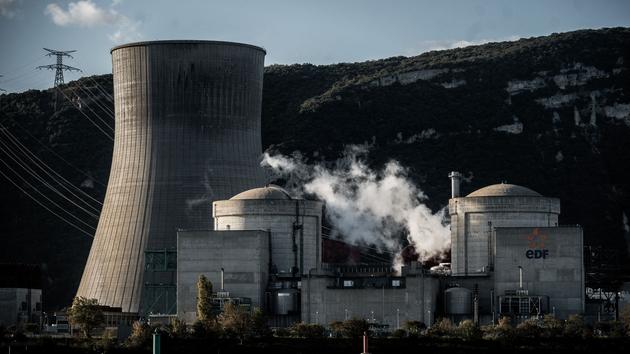Maxence Cordiez is an engineer in the energy sector.
The French energy company Engie operates, through its subsidiary Electrabel, the seven Belgian nuclear reactors.
On Friday February 26, when presenting its results, the company should announce the abandonment of programs to extend the operation of these reactors.
This follows the Belgian authorities' decision to phase out nuclear power by 2025, confirmed by the current coalition government.
It is the culmination of a long struggle of the Groën / Ecolo party, from which the current energy minister of the kingdom, Tinne van der Straeten, is the result.
Nuclear energy today represents about half of the electricity produced across Quiévrain, and it is (by far) the first low-carbon energy in the kingdom.
Today, the 5.9 GW of Belgian nuclear power capacities meet around half of the country's electricity demand.
To replace them, Belgium will install wind and solar capacities but these will be far from sufficient, in particular because of their variability.
This is why the authorities are planning in parallel to build several GW of fossil gas power plants and to increase electricity imports.
For this, the government is seeking to set up a support system for gas power stations (capacity remuneration mechanism, CRM).
Its acceptance by the European Commission is a prerequisite for its entry into force, but it is far from certain, the Commission's competition department being particularly vigilant with regard to State aid.
If Belgium succeeds in building gas power plants, it will still have to increase its dependence on electricity imports.
The deadline between now and the shutdown of the last reactors (4 years) is very tight and many stages remain to be covered before Belgium puts hypothetical new gas power stations into service.
It is uncertain whether the necessary replacement capacities will be available in 2025.
However, a nuclear power station does not last on a whim.
Studies must be carried out upstream by the operator and appraised by the safety authority, work may be required, fuel must be ordered, etc.
Thus, the more time passes, the more difficult it will be to reverse this decision.
If Belgium succeeds in setting up CRM and building gas power stations, it will still have to increase its dependence on electricity imports.
If it does not succeed, imports will become even more essential to ensure the supply of the kingdom.
This increased dependence will represent a real fragility, while other countries which are now major exporters such as Germany and France are also planning to reduce their generating capacities capable of producing on demand (coal and nuclear).
Read also:
"Closing nuclear power plants will increase fossil fuel emissions"
In January, the public expert institution France Strategy, moreover published a note indicating the fact that electricity production margins should become negative in Germany and Belgium by 2025 and in France by 2030, this which threatens the European electricity supply.
It is particularly daring for Belgium to count on significant growth in its imports in this context.
The generating capacities are called on the network in the order of increasing variable costs.
Variable costs are those that depend on the amount of electricity produced.
They mainly cover the cost of fuel and CO2 emissions for fossil power plants.
Thus, the so-called renewable energies are called in priority on the network (zero variable costs) and they produce to the maximum of their capacities.
Then comes nuclear (low variable costs) then gas, coal and finally fuel oil.
Capacities are called in this order until the demand is satisfied.
This over-demand on gas and coal-fired power stations will lead to an additional emission estimated between 20 to 34 million tonnes of CO2 equivalent per year.
Thus, if capacities at low variable costs (nuclear, wind power, etc.) are withdrawn from service, what they will not necessarily be produced by the last capacities called up on the European network.
That is to say mainly gas and coal power plants (fuel oil has a marginal role).
Renewable energies, which are already producing to their full potential, will not produce more.
Read also:
Does France still produce enough electricity?
This over-demand on gas and coal-fired power stations in Europe (not only in Belgium because the networks are interconnected) will lead to an increase in emissions - compared to the scenario in which the nuclear power stations would have been extended - which can be estimated between 20 to 34 million tonnes of CO2 equivalent per year.
The degradation of Belgian emissions was justified by the Minister of Energy Tinne van der Straeten: “
It's like renovating a house.
The situation gets worse before it gets better.
First you are in the dust and then you are happy that you made the effort.
To extend this dubious analogy, we could say that work is not limited to the demolition part, it is also necessary to have a credible reconstruction plan.
However, for the moment, Belgium does not have one.
It is the only country in the European Union that plans to increase the share of fossil fuels in its electricity mix by 2030, and the only one with Poland whose electricity is expected to depend more than 50% on fossil fuels. at this time… which is completely out of step with the climate emergency.







/cloudfront-eu-central-1.images.arcpublishing.com/prisa/RFXKLPJ6S5PGXJYGTELOFX5R6E.jpg)







